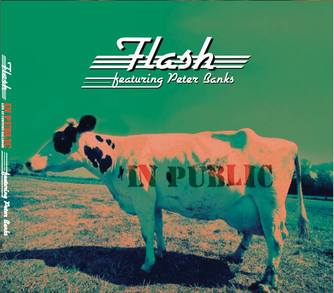
As most progressive rock aficionados will know, it was indeed Peter Banks who created and developed the progressive approach to guitar. Robert Fripp of King Crimson learned from Peter, Steve Howe of YES would lift outright from him and even confessed to doing so. However, it was not only in guitar performance that his progressive understanding was revealed but in composition and arrangement.
Peter brought a Jazz influence into the burgeoning genre and while with YES he and drummer Bill Bruford gave free rein to those Jazz tendencies. The Banks-Bruford sound continued to inform progressive rock, especially in King Crimson and especially when Bruford left YES for Crimson.
What Steve Howe brought to YES was a more classical approach with structure and form and soon progressive rock was divided into two approaches. The classical side was evident in YES, Emerson, Lake & Palmer, and Genesis while the Jazz intuition was easily seen in Frank Zappa, King Crimson and Peter Banks’ new band, FLASH.
After Peter’s merciless removal from YES, fellow musicians who had been listening to YES simply stopped. Pete Townshend of the Who commented, “I don’t like YES at all. I used to like them when Peter Banks was in the line-up because, apart from being extremely visual, he also played excellent guitar.”
Steve Hackett of Genesis said “Phil Collins and I were fans of Pete and his band FLASH. Pete’s talent extended way beyond the work he did with YES.” Unfortunately, however, Peter seemed stuck in the quagmire of his history with a band he helped create and who threw him over (as Pete would say: “The Struggle Continues”).
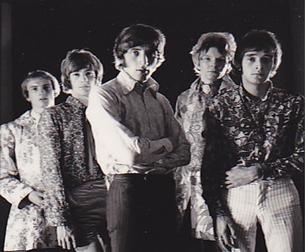 The Syn
The Syn The last recordings of Peter was on the album “In Extremis” by the duo Days Between Stations. On the track entitled “Eggshell Man,” three ex-YES members collaborated together with the duo. Peter was joined by Billy Sherwood and Rick Wakeman and the results were everything a musician or music aficionado could ever hope to hear.
A previous FLASH concert release was “Psychosync” which was a 1972-73 live recording released in 1997. Only two songs--“Dead Ahead” and “Psychosync”--were recorded in ‘73 and taped off NBC's “Midnight Special,” a late-night TV concert series. Even though the aired program was listed as being hosted by Jerry Lee Lewis, Lewis was not there for the October 9 taping of the show which included only FLASH and Eumir Deodato, the brilliant Jazz composer and performer. The other songs on “Psychosync”are from a show that was actually recorded for Long Island radio station WLIR on July 18, 1972.
“FLASH-In Public” was going to be Peter’s definitive portrait of the band performing live. He was producing it himself when he passed and the project has now been lovingly and exactingly completed by Peter’s longtime friend and manager, George Mizer. George says “We began work on it as far back as 2004, as reported on the bands website http://psychosync.info as far back as May, 2004.
It was George who came to rescue Peter’s remains and effects after Peter’s unexpected death in March, 2013. It was George who flew to London to claim Peter’s body with the help of Peter’s ex- wife, Cecilla Quino. George saw to the cremation and memorial service--all from love and devotion.
Two other members of FLASH--Colin Carter and Ray Bennett--have recorded an album of new material and are going by the name FLASH. They had been using the name “the Bennett/Carter Band” but stopped using it before Peters death. Many have persuasively criticized the effort as capitalizing on the death of Peter Banks but this, according to others, was an issue of the timing of the release. Their efforts were recorded about 4 years earlier but they couldn't get a deal until January, 2013. This, however, was after the label had already inked the deal for “Flash--In Public.”
Whatever the intent or motivation, without Peter Banks and Mike Hough (who gave his blessing on the release of "FLASH--In Public"), it is not the FLASH that is so well-loved and so well-remembered. In fact, one finds it difficult to imagine Paul McCartney and Ringo Starr collaborating on a project and having the audacity to call it the Beatles.
| | |
Ironically, the name on the “FLASH--In Public” album is listed as “FLASH featuring Peter Banks.” It is this particular item that appears the be the biggest bone of contention for Bennett and Carter, who are demanding that “featuring Peter Banks” be removed from the album cover. Ironic, in that the last FLASH studio album “Out of Our Hands” calls the band “FLASH featuring Peter Banks.”
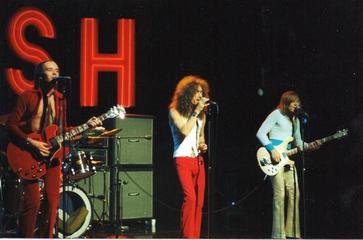 FLASH featuring Peter Banks
FLASH featuring Peter Banks Colin Carter’s vocals are strong and clear here. This was not always the case in earlier recordings but this is very complimentary here. Mike Hough is recorded beautifully, as well.
The pacing is furious and Peter indulges himself in a couple of bars from the “William Tell Overture.” It is easy to hear Peter’s use of pedals in the guitar interlude.
The interesting side-note to that is that Peter was probably the very first to use a pedalboard. It was built for him by YES’ roadie Michael Tate who had watched Peter struggling with the various effects pedals in the gigs leading up to YES’ first album. The make-shift pedalboard nailed it all down in one immovable place. After the departure from YES , Peter took his Pedalboard idea to Pete Cornish. and between the two of them, Pete's proper pedalboard was made, thus placing Pete Cornish in the history books as the creator of the first pedalboard.
“Small Beginnings” was one of the very first pieces written by Banks and Carter. The original track was almost 22 minutes long but was shortened for the LP. This 8:36 version is sterling.
The audience was appreciative and enthusiastic as Carter makes comment about the crowd “braving the snow” to come out for the concert. He introduces the next song as just having been released in the U.S. just the month before. That song, “Black and White,” was written by Ray Bennett “with a little help from Pete.” This was one of the nice features of the album, hearing Carter ‘s introductions and comments between the music.
As one might expect, the track carries a heavy-laden bass line. Peter’s pizzicato guitar joins with a splendid lead line. It is easy to hear the Wes Montgomery stylings before the vocals kick in. There are excellent changes and the vocal arrangement is exciting with the harmonies so clearly recorded.
Although Peter Banks is clearly the main attraction, the democratically distributed solos and spotlights make clear what was one of FLASH’s many strengths. The play between Peter and Bennett, however, is only slightly reminiscent of that between Peter and Chris Squire in the early days of The Syn, just a few years before.
This was 12:23 of fun and challenging music. Bennett is vivid. Hough is electric. Carter is having a great time and Peter is exploring every avenue that is available. It seems that it was important for Peter to preserve that sense of fun and camaraderie in all that he included on this album.
Sadly, though, that feeling is now 40 years long gone as shown by the wrangling over this very release. Colin Carter is quoted in one interview as saying that “somebody has a bootleg of a FLASH gig from a few years ago and wants to put it out.” He then goes on to claim that he was not consulted.
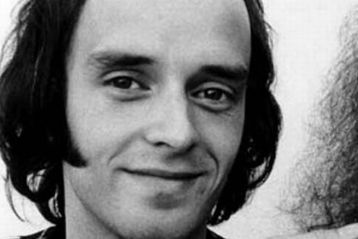
Not only was Carter aware of the album, not only did he know who had the tapes, he was cooperative, having known about the project for years. In the interview, Carter expressed concern over the quality of the recording. He should rest assured that the quality is remarkable.
The quality is proven once again in Mike Hough’s composition “Stop That Banging,” the fourth track on the album. Of course, it features Hough on drums and he turns in a solo as jazzy as Elvin Jones. It is melodic as well as percussive; it is extremely tonal. And it leads right into…“There No More” by Ray Bennett. The Bennett bass lines are delicate and harmonic. Carter’s vocals are again distinct and clear.
FLASH was a band without a keyboardist, despite the auditioning of Ian McDonald and Patrick Moraz, after Tony Kaye guested on the first album. Peter’s playing often takes on a keyboard quality that is exquisite. “There No More” may be the best example of that where the instrumentation is astonishing and the vocal harmonies are so very well represented. Peter’s fade-out is a thing of beauty.
Another Bennett composition from the first album follows next. “Children of the Universe” is another jazzy rocker from the band that did it as well as anyone. Bennett’s bass gives the feeling of sheer propulsion as Peter’s guitar surges forward from it. Hough’s drums are straightforward and that Peter Banks guitar gives clear evidence of just how much Robert Fripp was influenced by Peter. Peter also sticks in a nine-note quip from “Le Marseillaise.” There are good changes, quirky riffs and moments of sheer loveliness.
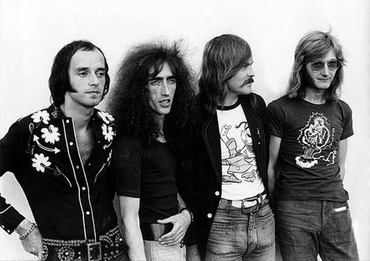
A steady rock-jazz riff develops while Bennett and Hough hold down the rhythm line. There are long guitar improvisations with Bennett and Hough never far behind. These were four musicians in harmony with each other, even when Peter breaks into “Something’s Coming” from West Side Story. Was that a YES-tease?
On the studio album, “Dreams of Heaven” is 12:59 but the live album with all it’s improvs and vamps comes in at 24:54 and is worth every second of it. The band is synchronous and innovative and Peter Banks leads the way. He is imaginative and daring and whimsical with a quick break into “Mama’s Little Baby Loves Shortnin’ Bread” followed by epic exchanges with Bennett. Peter is still crafting his sound finer and finer with greater definition and flair. That sound is carried farther than ever before with the sound and fury that was FLASH.
When “Dreams of Heaven” ends, the band gives a warm farewell to the audience. This was a band that was truly so well-loved. Thanks to George Mizer, who finished what Peter began, FLASH sounds as fresh as they did 40 years ago.
It is not just nostalgia that makes this album so appealing. It is not simply completing a collection of FLASH recordings. This is a landmark recording from a guitarist that changed the music work, who created a sound that has continued from the early days of The Syn to the recent days of Transatlantic or I Know You Well Miss Clara.
More than anything, it is good music whose time has not run out.
Thanks again for the music, Peter. But “the struggle continues” indeed...
"FLASH--In Public" can be ordered at: www.peterbanks.net
Visit and "Like" the Facebook page: https://www.facebook.com/PeterBanksFlash
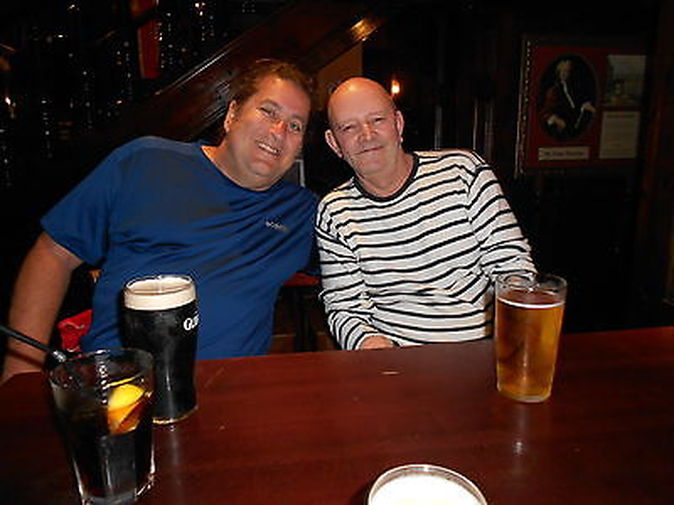
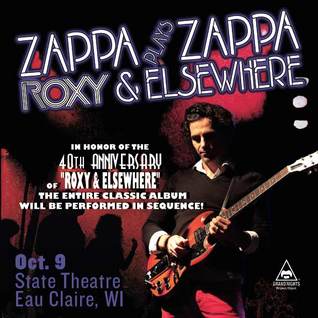
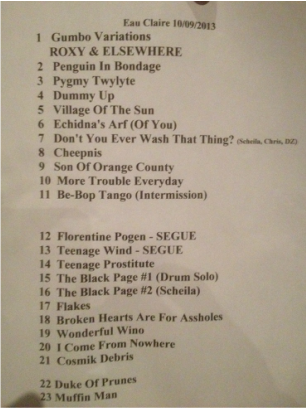

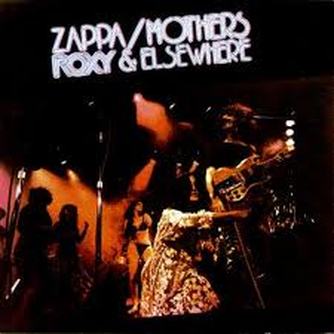
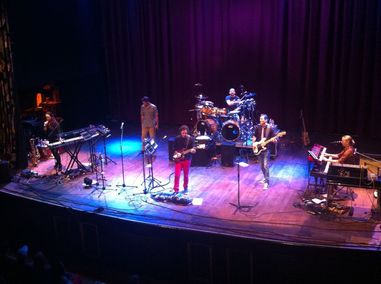
 RSS Feed
RSS Feed
